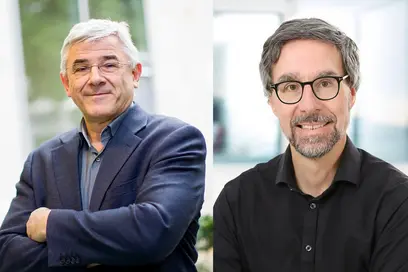For this project, Brocks has studied a specific epigenetic mechanism called DNA methylation. This is a process in which the cell attaches methyl groups to individual DNA building blocks and, thus, influences whether the blueprint for a certain protein is available or not. This can have grave consequences for the entire organism: For example, if a particular gene for a growth factor has only a few methyl groups and is consequently very active, this can lead to unlimited cell division and, in the worst case, to the development of cancer. Various factors affect the pattern of methyl groups on the DNA and, in this way, may influence which genes are turned on or turned off. For example, diet is among the factors that can cause epigenetic changes and thus ultimately promote disease.
More and more scientists are presently addressing the exciting research field of epigenetics. Yet in the general public, it is by far less known than genetics. David Brocks, a PhD student at the Division of Epigenomics and Cancer Risk Factors at the German Cancer Research Center (Deutsches Krebsforschungszentrum, DKFZ), wanted to make this complex topic more easily accessible. He has developed a method that transforms the epigenetic pattern of DNA into music.
To this end, Brocks has focused exclusively on sites in the DNA where the cell can attach methyl groups. Across the whole genome, there are about 28 million positions that can be either methylated or not. “The idea was to combine several of these methylation sites in order to generate a greater complexity of music and notes,“ Brocks explained. To do so, his approach is to join up fragments of seven potential modification sites. For each of these fragments, there are 2 to the power of 7, i.e., 128 sequences that are theoretically possible. Brocks then matches them with 128 different chords and note variations. Several fragments in a row are a musical reflection of the methylation pattern of the DNA region that is being studied. A specific DNA region that plays a role in the development of prostate cancer is an example of the audible difference between cancer cells and healthy cells: The relevant DNA region “sounds“ very different in cancer cells, due to many additional methyl groups, compared to healthy cells, whose DNA exhibits much lower levels of methylation.
Brocks receives positive feedback for his method from around the world. A colleague from Australia, who pursues twin studies, has shown very specific interest. “He asked me whether it was possible to use the musical transformation to compare the epigenetic differences in a set of twins,“ Brocks said. While the sequence of DNA building blocks in the genome of monozygotic twins is almost 100 percent the same, their epigenetic patterns exhibit variations due to different environmental influences.
An audio sample of the “epigenetic melody“ is available in the DKFZ audio track or in the publication.
David Brocks: Musical patterns for comparative epigenomics.
Clinical Epigenetics 2015, 10.1186/s13148-015-0127-8



